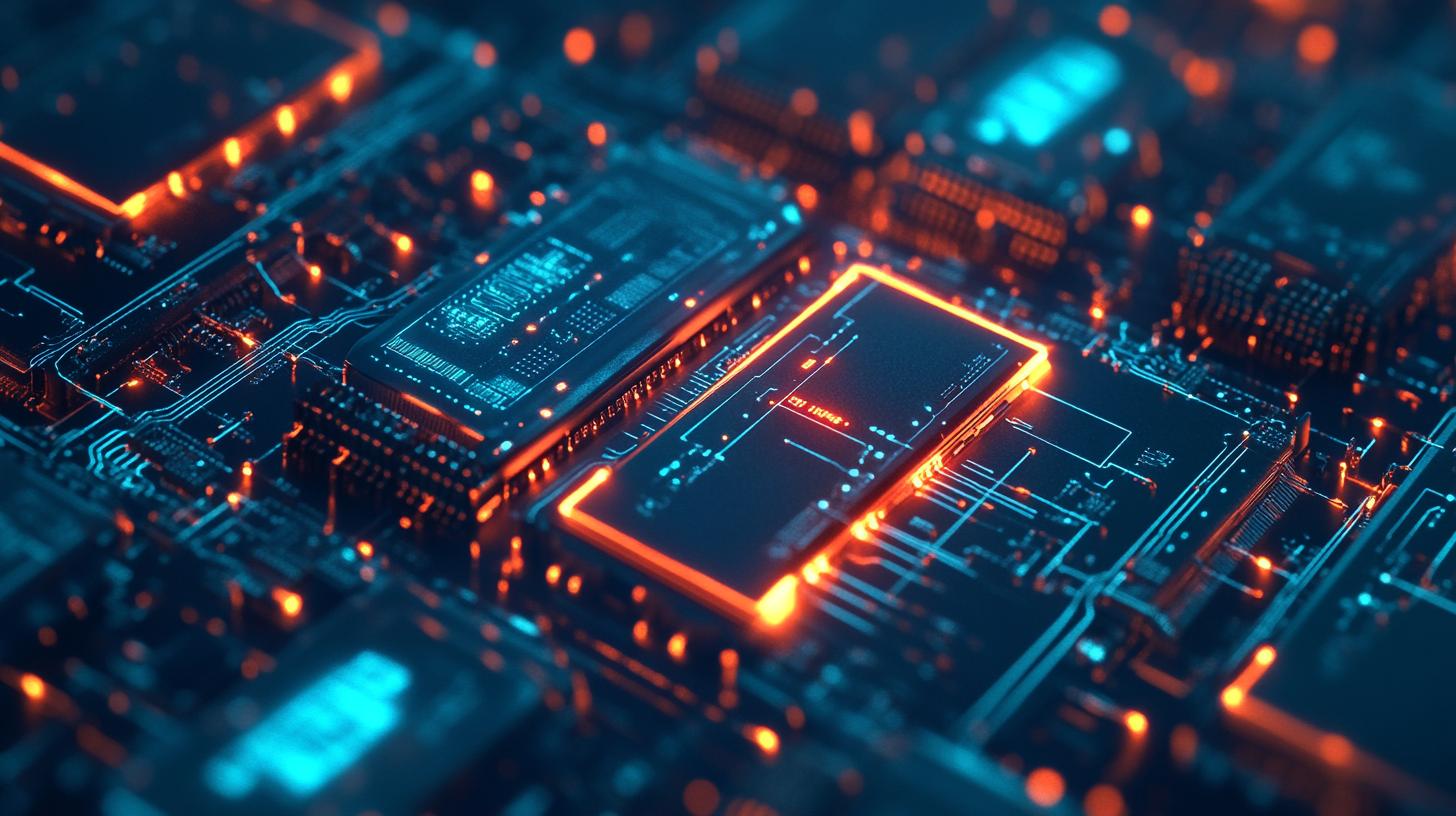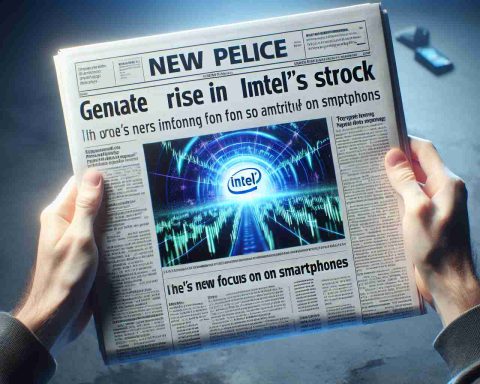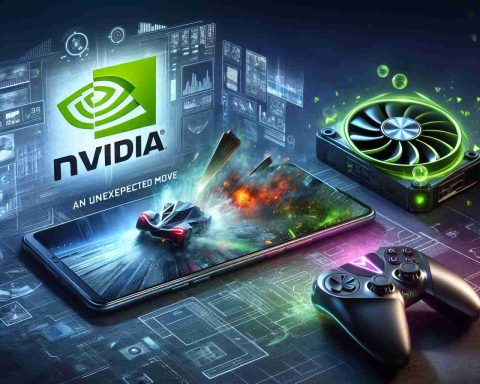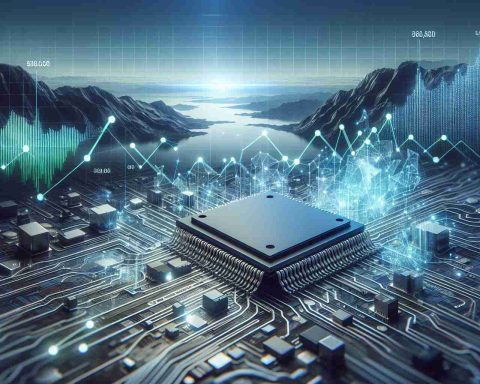Wall Street Anticipation
As the stock market gears up for the new week, investors have their eyes set on Nvidia’s highly anticipated earnings report due Wednesday. Leading up to this event, there has been significant buzz about potential overheating issues with Nvidia’s latest Blackwell processors, especially when used in high-capacity servers. This report comes at a critical moment for the tech giant.
Initially, Nvidia shares dipped 1.3% on Monday. Analysts project an optimistic fiscal fourth quarter, with Nvidia expected to report earnings of 75 cents per share, marking an 86% increase compared to the previous year, supported by a sharp rise in projected sales to $33.1 billion.
Market Dynamics
Nvidia was not the only company seeing dramatic movements. Palantir Technologies saw its stock plummet by nearly 7%, an unexpected shift for a company recently enjoying a record-high valuation. In contrast, Tesla shares made a notable recovery, spiking 5.6% after the newly elected U.S. president’s transition team signaled intentions for a regulatory framework on autonomous vehicles.
Economic Indicators Ahead
Investors await this week’s lighter economic releases, with particular interest surrounding the housing economic data. Given the recent hike in mortgage rates, up to 7%, housing starts and building permits data, releasing Tuesday, are set to provide insights into the sector’s health.
Conclusion
As Nvidia prepares for its earnings call, market participants remain eager, scrutinizing every move and update. Alongside this, key economic indicators and earnings reports from retailers like Walmart and Target are set to shape market sentiment further, making this a pivotal week for market watchers.
The Unseen Impacts of Nvidia’s Blackwell Processors: Global Implications and Community Reactions
As Nvidia’s earnings report draws near, the spotlight is not just on the fiscal outlook but increasingly on the controversy surrounding its Blackwell processors. Known for groundbreaking innovations, Nvidia faces potential obstacles as rumors of overheating in high-capacity servers circulate. The implications of these technical complications stretch beyond mere corporate headaches, affecting communities, industries, and global markets in complex ways.
Interesting Facts and Controversies
Nvidia’s Blackwell processors represent the zenith of current tech development. They are designed for high-performance computing, including artificial intelligence (AI) and data science applications used globally across various sectors. Despite their revolutionary design, the overheating issues might stem from the products’ unprecedented power and efficiency demands—highlighting the challenging balance between innovation and technical reliability.
The controversy doesn’t stop at potential hardware issues. It extends to environmental concerns. High-performance processors like Blackwell consume significant energy, arriving at a time when sustainability is a top priority for tech companies. The potential for increased energy demands could conflict with global carbon-reduction efforts, provoking discussions about energy-efficient designs versus performance goals.
How Does This Affect People, Communities, and Countries?
For tech-heavy economies, any issue with Nvidia has significant repercussions. Communities that host data centers deploying these processors may face infrastructure challenges, exacerbated by potential overheating. This could lead to disruptions in local grids or increased cooling needs, pressuring local resources and increasing the carbon footprint.
For tech-reliant industries, delays or setbacks in Nvidia’s processor performance could stall projects, particularly in fast-moving sectors like AI, autonomous vehicles, and advanced scientific research. This impacts job markets, circumstantially limiting new opportunities or necessitating skill shifts within the workforce.
Internationally, countries heavily investing in technological advancements may need to reconsider their strategies. Nations betting on Nvidia’s technology for future initiatives in education, defense, or digital infrastructure could face strategic challenges, prompting policy reviews or diversified investments to mitigate reliance on potentially unstable tech solutions.
Advantages and Disadvantages
On one hand, Nvidia’s processors continue to push the boundaries of technological advancement, enabling innovations across various domains. Their potential unrivaled speed and efficiency create opportunities for breakthroughs in medicine, engineering, and more.
However, the disadvantages include the risk of technical failures in critical applications, possibly deferring the timeline for crucial developments. Energy consumption and sustainability continue to be pressing issues, requiring Nvidia and other tech giants to devise energy-efficient solutions that do not compromise performance.
Related Questions and Answers
Q: What are some measures communities can take to mitigate potential overheating issues?
A: Communities could implement advanced cooling technologies, explore alternative energy and resource reduction methods, and work with tech companies to develop more sustainable processor models.
Q: How could this technical issue affect Nvidia’s stock in the long term?
A: If unaddressed, the overheating problem could diminish investor confidence and lead to stock volatility. However, effective management and solutions could stabilize and even improve stock value.
For further insights into technological advancements and their impacts, visit Nvidia, Palantir Technologies, and Tesla.
The unfolding story of Nvidia’s processors is a vivid example of how tech innovations can have broader societal and global effects, provoking industry-wide introspection and strategic pivots.



























